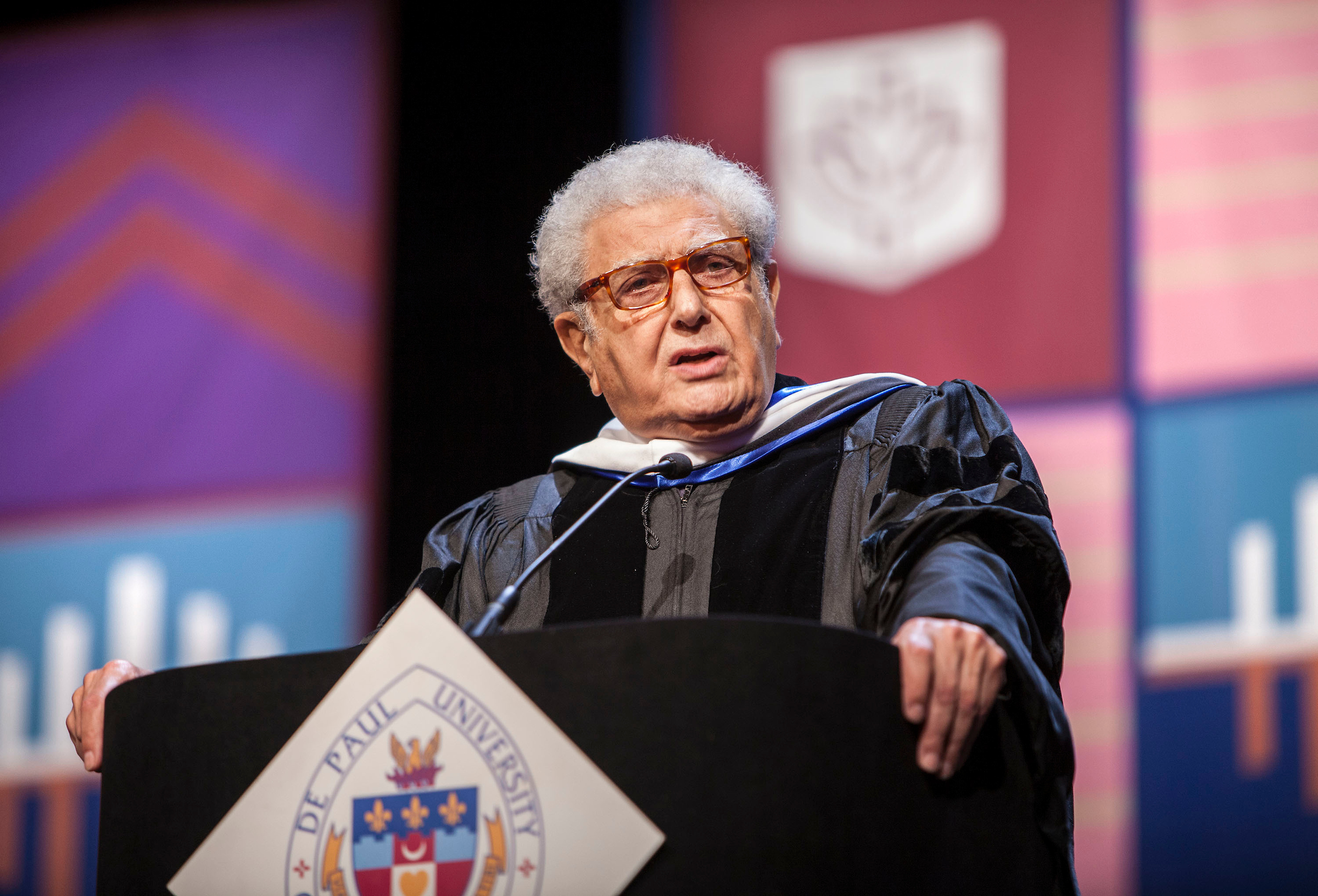 The 28th annual DePaul Law Review Symposium will be held on Friday, March 23, DePaul will host the 28th annual Law Review Symposium in honor of distinguished College of Law professor M. Cherif Bassouini. (DePaul University/Jeff Carrion)
The 28th annual DePaul Law Review Symposium will be held on Friday, March 23, DePaul will host the 28th annual Law Review Symposium in honor of distinguished College of Law professor M. Cherif Bassouini. (DePaul University/Jeff Carrion)
Human rights advocate, renowned legal scholar and DePaul University Emeritus Professor of Law M. Cherif Bassiouni died Sept. 25 at the age of 79. A memorial service to celebrate his life is being planned, however, no details are available at this time.
Professor Bassiouni joined DePaul's College of Law in 1964. As a professor, he introduced the field of international human rights law to generations of students and inspired many to follow in his footsteps, forging careers fighting for the rights of powerless people around the globe.
In 1990, he founded DePaul's International Human Rights Law Institute, over which he presided until 2008, a year before he retired. During those years, the institute became world famous, involving many students who went on to pursue international careers. His teaching, scholarship and international accomplishments have garnered dozens of awards from many nations, including 11 medals of honor and 10 honorary degrees - one conferred by DePaul University in 2015.
Professor Bassiouni believed strongly in the rule of law, and sought to improve the administration of justice around the world by speaking truth to power. For decades, he had been the United Nations' choice to conduct investigations where genocide, murder, rape, sexual slavery, violence against citizens, pillaging of property and other heinous crimes were suspected, including in the former Yugoslavia, Afghanistan, Iraq, Bahrain and Libya.
"Cherif was one-of-a-kind, an incredible teacher and prolific scholar who touched the minds of so many who follow in his footsteps," says Jennifer Rosato Perea, dean of the College of Law. "His legacy in furthering human rights around the world will be felt for generations. Although we can never fill the void that Cherif left, we can continue to honor him through the law school's work in human rights locally and globally."
"During his 45 years at DePaul, Cherif made many contributions to the university and to the international community," notes Bruce Ottley, a professor of law who had been a colleague since 1978. "In addition to being a renowned and prolific scholar and excellent classroom teacher, he believed that he had an obligation to put into practice what he taught. He established the Siracusa International Institute for Criminal Justice and Human Rights in Italy, which brought together government officials, lawyers, and academics from all over the world to study problems of criminal justice and human rights."
"Cherif established the International Human Rights Law Institute at DePaul, which gave students an opportunity to become involved in human rights projects in Central America, the Middle East and other parts of the world," Ottley says. "He was the chair of the group that drafted the Rome Treaty, creating the International Criminal Court. He also put his own life at risk while investigating and collecting evidence of war crimes in Bosnia in the 1990s. DePaul and the international community owe a deep debt of gratitude to Cherif. He will be sorely missed in these difficult times."
Bassiouni was born in Cairo, Egypt, Dec. 9, 1937. He was the son of an Egyptian ambassador and the grandson of the first president of the Egyptian Senate. He fought for the Egyptian National Defense in the Suez War of 1956 and immigrated to the United States in 1962.
During his career, Bassiouni testified before Congress 18 times, authored, co-authored or edited 80 books and wrote 269 articles. He studied law in Dijon, France, and Geneva, Switzerland before obtaining an LL.B. from the University of Cairo in Egypt. He also pursued his legal education the United States where he earned the following degrees: J.D. Indiana University, LL.M. John Marshall Law School, and S.J.D. George Washington University.
Bassiouni is survived by his wife Elaine Klemen-Bassiouni, his stepdaughter, Lisa Capitanini, and two step-grandchildren.